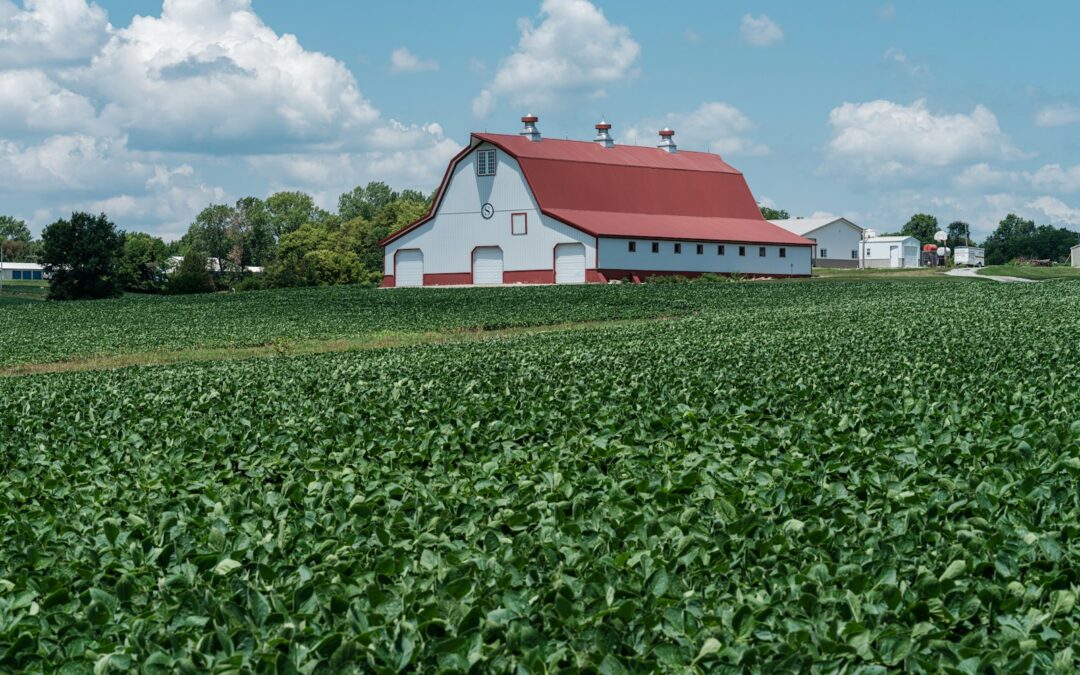How Technology is Revolutionizing Crop Management and Yield Prediction
The Rise of AI in Swiss Agriculture
Artificial intelligence (AI) in Switzerland’s agricultural sector is playing a crucial role in enhancing crop management and improving yield prediction, marking a significant shift in how farmers approach their work. Swiss farmers are increasingly relying on AI-powered tools to make data-driven decisions that optimize agricultural processes and boost productivity. This digital transformation is a response to the growing challenges in the farming industry, such as climate change, fluctuating market demands, and labor shortages.
By using AI technology, farmers in Switzerland can monitor real-time data from sensors, drones, and satellite imagery. These advanced technologies provide insights into soil conditions, moisture levels, and crop health, allowing for more precise and timely interventions. As AI continues to evolve, the ability to predict and respond to issues before they arise is becoming more accurate, contributing to sustainable and profitable farming practices across the country.
The integration of AI in Swiss agriculture has not only improved operational efficiency but has also set the stage for a more sustainable future. By reducing the dependency on manual labor and traditional farming techniques, AI is helping farmers meet the demands of a growing population while minimizing environmental impact. This combination of technology and sustainability is key to the ongoing success of agriculture in Switzerland.
Improving Crop Management with AI Technology
AI technology is rapidly becoming an indispensable tool in crop management for Swiss farmers, who face increasing pressure to maximize yields while minimizing environmental impact. Through advanced algorithms and machine learning, AI systems can analyze vast amounts of data to identify trends and patterns in crop growth, soil health, and weather conditions. This data-driven approach enables farmers to make informed decisions that optimize the timing and application of water, fertilizers, and pesticides.
One of the most significant benefits of AI in crop management is its ability to predict potential risks, such as disease outbreaks or pest infestations. By analyzing historical data and current conditions, AI models can forecast when and where these risks are likely to occur, allowing farmers to take preventative action. This not only reduces crop loss but also minimizes the use of chemical treatments, leading to more sustainable farming practices.
In Switzerland, where the agricultural landscape is diverse and often challenging due to its mountainous terrain, AI offers farmers the ability to manage their crops more effectively. By utilizing AI-powered drones and sensors, farmers can monitor their fields remotely, even in hard-to-reach areas. This technology provides real-time feedback, allowing for more efficient resource allocation and reducing the overall cost of production.
Enhancing Yield Prediction with AI-Driven Insights
AI’s ability to predict crop yields with high accuracy is transforming how Swiss farmers plan and manage their harvests. Yield prediction has always been a critical aspect of agriculture, but traditional methods were often based on historical data and human intuition, which could lead to inaccurate forecasts. With AI, farmers now have access to more reliable and detailed yield predictions that account for a wide range of variables, from soil composition to weather patterns.
AI-powered models use data collected from various sources, such as satellite imagery, soil sensors, and climate data, to create predictive models that estimate crop yields. These models are continuously updated as new data becomes available, allowing farmers to adjust their strategies throughout the growing season. This real-time adaptability ensures that farmers can respond quickly to changing conditions, reducing the risk of crop failure and improving overall productivity.
In Switzerland, where the agricultural sector is highly dependent on export markets, accurate yield predictions are essential for meeting demand and maximizing profits. By leveraging AI technology, farmers can better plan their production cycles and negotiate contracts with greater confidence. Furthermore, AI-driven yield prediction helps farmers optimize their resources, ensuring that they can produce more with less, thereby contributing to a more sustainable agricultural industry.
The Future of AI in Switzerland’s Agricultural Sector
As AI continues to advance, its role in Switzerland’s agricultural sector is expected to grow even more significant. The technology holds the potential to revolutionize not just crop management and yield prediction but also other aspects of farming, such as livestock management and supply chain optimization. AI-powered automation could further reduce labor costs, allowing farmers to focus on more strategic aspects of their operations.
The Swiss government and various agricultural organizations are already investing in AI research and development, recognizing its potential to enhance the country’s agricultural output. With continued support and innovation, Switzerland is well-positioned to become a global leader in AI-driven agriculture, setting a standard for sustainable farming practices worldwide.
In conclusion, the integration of AI in Switzerland’s agriculture is transforming how farmers approach crop management and yield prediction. By harnessing the power of AI, Swiss farmers can increase efficiency, reduce environmental impact, and ensure the long-term sustainability of their operations. As the technology continues to evolve, the future of Swiss agriculture looks promising, with AI playing a central role in shaping its success.
—
#AIinAgriculture, #DigitalTransformation, #SwissFarmingInnovation, #CropManagement, #YieldPrediction, #AIinAgriculture, #SustainableFarming

